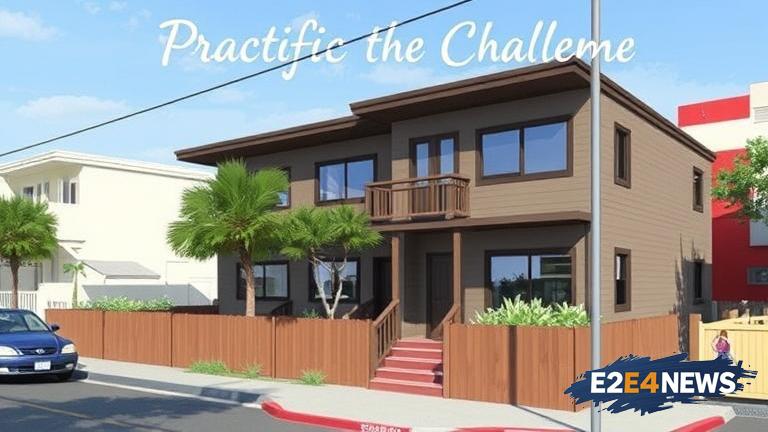A group of Pacific Beach residents has taken a stand against Chalcifica’s plans to develop a large-scale Accessory Dwelling Unit (ADU) project in their neighborhood. The proposed project, which would include multiple ADUs on a single lot, has sparked controversy among community members who are concerned about the potential impact on the area’s character, traffic, and environment. The neighborhood group, which is comprised of local homeowners and residents, has filed a lawsuit against the city and Chalcifica, alleging that the project does not comply with local zoning regulations and would result in a significant increase in density. The group is seeking to block the project, citing concerns over the potential strain on local infrastructure, including roads, schools, and emergency services. They also argue that the project would lead to a loss of parking spaces, increased noise pollution, and a decrease in property values. Furthermore, the group is concerned about the environmental impact of the project, including the potential for increased stormwater runoff and the destruction of native habitats. The lawsuit claims that the city failed to properly review the project’s environmental impact and did not provide adequate notice to the community. Chalcifica, the developer behind the project, has argued that the ADU mega project is necessary to address the city’s housing shortage and would provide much-needed affordable housing options. However, the neighborhood group disputes this claim, arguing that the project would not provide truly affordable housing and would instead cater to short-term renters and investors. The group is calling for a more thoughtful and community-driven approach to development, one that prioritizes the needs and concerns of local residents. The lawsuit is the latest development in a long-standing debate over the future of Pacific Beach, with some residents pushing for more development and others advocating for preservation of the area’s character. The case is expected to be closely watched by city officials, developers, and community groups, as it has the potential to set a precedent for future development projects in the area. The neighborhood group’s lawsuit is also seen as a test of the city’s commitment to community engagement and environmental sustainability. As the case moves forward, it is likely to spark further debate and discussion about the role of ADUs in addressing the city’s housing crisis, as well as the need for more inclusive and sustainable development practices. The city’s planning department has come under scrutiny for its handling of the project, with some critics arguing that it has failed to adequately address community concerns. The neighborhood group’s lawsuit has also highlighted the need for greater transparency and accountability in the development process, with many calling for more robust community engagement and environmental review. In response to the lawsuit, Chalcifica has stated that it is committed to working with the community to address concerns and find a solution that works for everyone. However, the neighborhood group remains skeptical, arguing that the developer’s intentions are not aligned with the best interests of the community. The case is expected to be heard in court in the coming months, with a ruling that could have significant implications for the future of development in Pacific Beach. The neighborhood group’s efforts have been praised by many in the community, who see their lawsuit as a necessary step in protecting the area’s character and quality of life. As the debate over the ADU mega project continues, it is clear that the outcome will have far-reaching consequences for the community and the city as a whole. The neighborhood group’s lawsuit has sparked a wider conversation about the need for more sustainable and community-driven development practices, and it remains to be seen how the city will respond to these concerns. In the meantime, the community will be watching closely as the case unfolds, with many hoping that the outcome will prioritize the needs and concerns of local residents.





